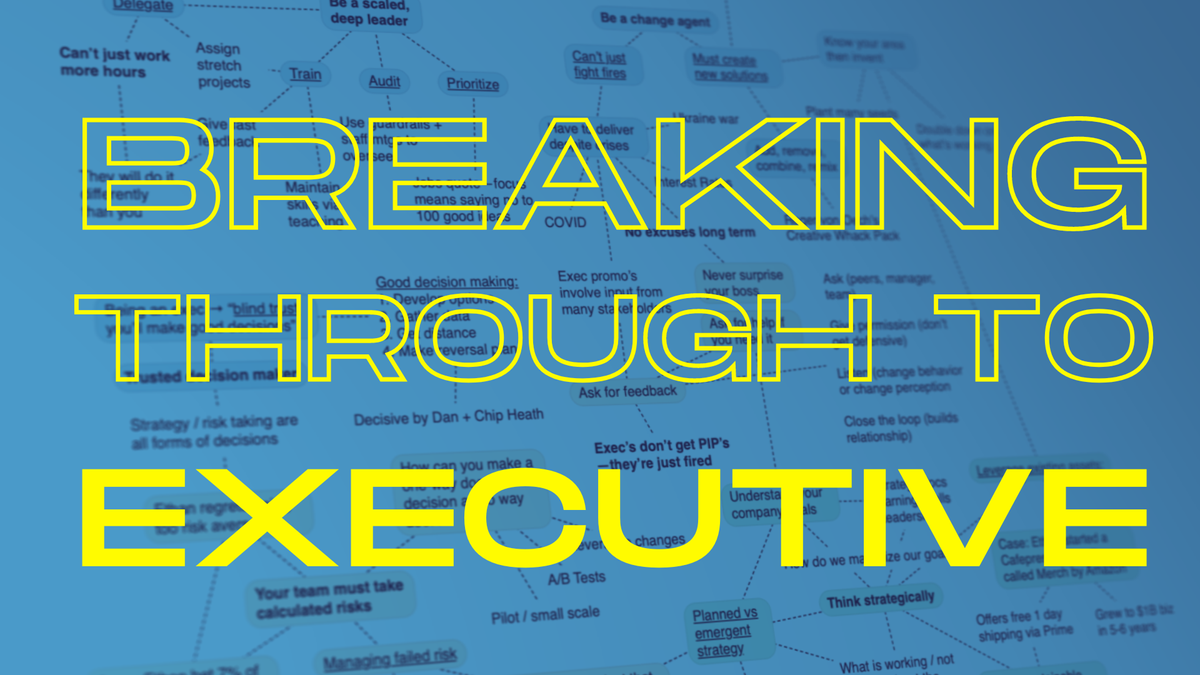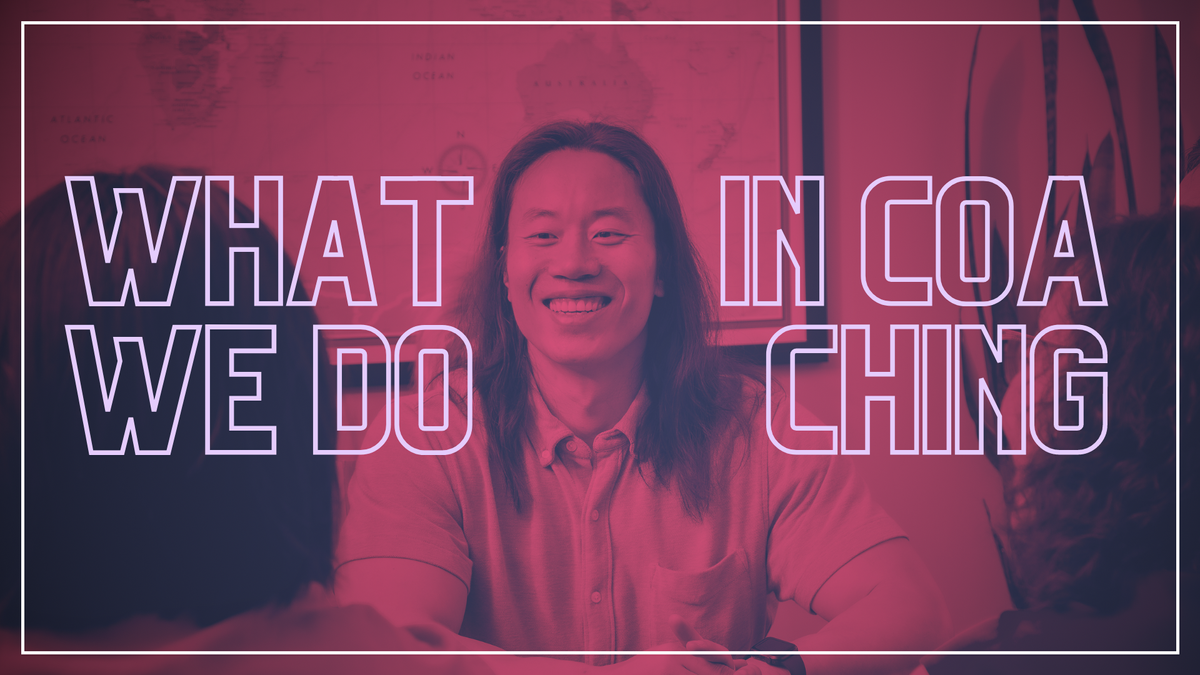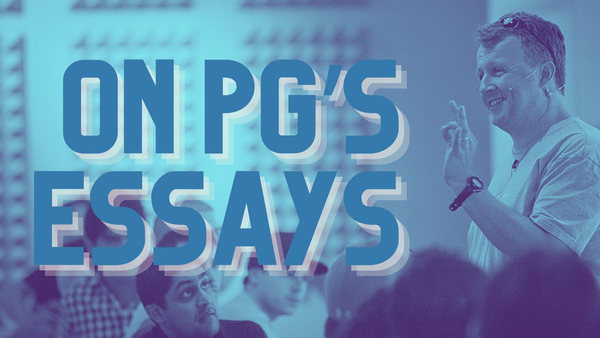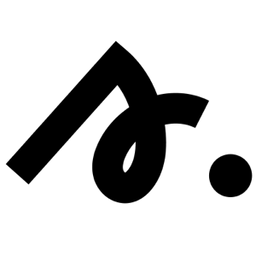It's raining here in Brooklyn but I still got my Crossfit workout in. After 3 weeks of the Crossfit Open—which gave me 2 palm rips and some lingering neck strain—I was grateful to have a moderate, if slightly damp, workout.
This week, I'm sharing a draft of an essay I've been noodling on for a while. Several YC founders are putting together a YC yearbook/compendium for the community and I volunteered to contribute an essay. It would be a kind of retrospective on many of cofounder Paul Graham's influential essays over the years.
Problem is, I wrote half the essay then started procrastinating. It's a big job!
But then I was talking to my friend Kaila, who recently started a new job working closely with founders. And she had been assigned a couple PG essays to read—which reminded me and motivated me to finish this draft.
Many of you joined this newsletter after seeing my mindmap of PG's How to Do Great Work essay blew up on Twitter. Well consider this a more sweeping survey of a few of my favorite PG essays—written for the YC audience but available to all.
How to Write and Think Like PG
PG’s essays and ideas form some of the most essential aspects of Y Combinator. In many ways, his idea shape the core essence of YC is. Because beyond being a great investor, entrepreneur, and programmer, at his core, PG is an ambitious, independent thinker. And many of his best ideas live on in his essays.
It was through writing and thinking that PG developed the idea of Y Combinator itself. In 2005, he gave a talk about how to start a startup to a group of students. Here’s how it started:
You need three things to create a successful startup: to start with good people, to make something customers actually want, and to spend as little money as possible. Most startups that fail do it because they fail at one of these. A startup that does all three will probably succeed.
And that's kind of exciting, when you think about it, because all three are doable. Hard, but doable. And since a startup that succeeds ordinarily makes its founders rich, that implies getting rich is doable too. Hard, but doable.
If there is one message I'd like to get across about startups, that's it. There is no magically difficult step that requires brilliance to solve.
The whole thing is classic PG. Clear, simple language with the most important ideas first. The talk was so good that PG incepted himself into cofounding Y Combinator shortly thereafter. Here’s how he reflected on that moment 7 years later:
I had just given a talk to the undergraduate computer club at Harvard about how to start a startup, and it hit me afterward that although I had always meant to do angel investing, 7 years had now passed since I got enough money to do it, and I still hadn't started. I had also been thinking about ways to work with Robert Morris and Trevor Blackwell again. A few hours before I had sent them an email trying to figure out what we could do together.
Between Harvard Square and my house the idea gelled. We'd start our own investment firm and Jessica could work for that instead. As we turned onto Walker Street we decided to do it. I agreed to put $100k into the new fund and Jessica agreed to quit her job to work for it. Over the next couple days I recruited Robert and Trevor, who put in another $50k each. So YC started with $200k.
It’s crazy to imagine that the world’s greatest startup accelerator was founded with just $200k. That’s way less YC gives every single startup in 2024 even after adjusting for inflation.
Despite stepping back years ago from day-to-day operations, it’s hard to overstate how PG’s essays have shaped not just on YC, but how millions of programmers, founders, and investors think about building the future.
So as a relative OG founder (S11) who read many of PG’s most influential essays when they were published, I thought I’d do a survey of some of his words The ones that affected me and the ones that I think have laid a lot of the thinking for what Y Combinator became and is becoming.
Let’s look at his 2012 essay on black swan farming, a reference to Nassim Taleb’s idea of significant but unexpected events. Everyone knows that startups and venture capital are a hits-based business. But in this essay, PG really emphasizes just how extreme the concentrations of winners really are, and just how bad many of the best ideas really sound.
You can see PG's trademark intellectual humility in admitting that despite his own appreciation for the concentration of winners rule, he still has difficulty taking the correct level of risk.
We can afford to take at least 10x as much risk as demo day investors. And since risk is usually proportionate to reward, if you can take more risk, you should. What would it mean to take 10x more risk than demo day founders? We'd have to be willing to fund 10x more startups than they would. Which means that even if we're generous to ourselves and assume that YC can on average triple a startup's expected value, we'd be taking the right amount of risk if only 30% of startups were able to raise significant funding after demo day.
PG has, of course, written a lot of essays about how to be a great founder, the importance of being formidable, and being hard to kill like cockroaches. But I will always remember his 2009 essay, "Relentlessly Resourceful" where he described this term as the core definition of being a great founder: two words that each play off of each other.
But finally I've figured out how to express this quality directly. I was writing a talk for investors, and I had to explain what to look for in founders. What would someone who was the opposite of hapless be like? They'd be relentlessly resourceful. Not merely relentless. That's not enough to make things go your way except in a few mostly uninteresting domains. In any interesting domain, the difficulties will be novel. Which means you can't simply plow through them, because you don't know initially how hard they are; you don't know whether you're about to plow through a block of foam or granite. So you have to be resourceful. You have to keep trying new things.
One of the reasons why relentless resourcefulness is so important is because founders often have to do things that don’t scale. This 2013 article coined a phrase that you’ll hear come out of every early stage investor’s mouth because it turned a core premise of venture backed startups and well-designed software on its head: the need to scale.
Early on, PG explained, you have to put inordinate amounts of energy to acquire your early users. Meet them in person, install things manually, complete the tedious parts for them. He cites numerous examples: Stripe, Meraki, Pebble, but the most enduring example is Airbnb. Brian. Joe, and Nathan would visit hosts personally and take professional photos of their properties to make the listing as attractive as possible.
Marketplaces are so hard to get rolling that you should expect to take heroic measures at first. In Airbnb's case, these consisted of going door to door in New York, recruiting new users and helping existing ones improve their listings. When I remember the Airbnbs during YC, I picture them with rolly bags, because when they showed up for Tuesday dinners they'd always just flown back from somewhere.
This idea ties in with another idea PG argues is a valuable quality in founders: being blind to the schlep. Originally from Yiddish, schlep refers to any unpleasant or tedious task.
One of the many things we do at Y Combinator is teach hackers about the inevitability of schleps. No, you can't start a startup by just writing code. I remember going through this realization myself. There was a point in 1995 when I was still trying to convince myself I could start a company by just writing code. But I soon learned from experience that schleps are not merely inevitable, but pretty much what business consists of. A company is defined by the schleps it will undertake.
The most dangerous thing about our dislike of schleps is that much of it is unconscious. Your unconscious won't even let you see ideas that involve painful schleps. That's schlep blindness.
PG suggests that to avoid schlep blindness, it’s helpful to ask, “What problem do I wish someone else would solve for me?” Stripe did it for payment processing, which every programmer who had implemented one knew to be a terrible schlep. But the Collision brothers actually took it upon themselves to solve it—they created something people want.
That phrase, make something people want, was quickly established as motto of Y Combinator. I don’t know if YC founders still get the grey shirts with those words on the front. But what many people might not realize is that the phrase first came from PG’s attempts to describe wealth in his essays.
Like perhaps some of you, I grew up with a complicated relationship to money—because it seemed the only way to get rich is to do things that seem unpleasant (lobbying, marriage, speculation) or downright immoral (monopoly, extortion, fraud, theft). But PG helped me understand that you can get rich by creating wealth. In his 2004 essay, first published in his book Hackers and Painters, he coined this signature phrase while explaining the difference between wealth and money.
The advantage of creating wealth, as a way to get rich, is not just that it's more legitimate (many of the other methods are now illegal) but that it's more straightforward. You just have to do something people want.
Wealth is the fundamental thing. Wealth is stuff we want: food, clothes, houses, cars, gadgets, travel to interesting places, and so on. You can have wealth without having money. If you had a magic machine that could on command make you a car or cook you dinner or do your laundry, or do anything else you wanted, you wouldn't need money. Whereas if you were in the middle of Antarctica, where there is nothing to buy, it wouldn't matter how much money you had.
And lucky for many of us, one of the most straightforward ways to create wealth is through building great technology.
The people most likely to grasp that wealth can be created are the ones who are good at making things, the craftsmen. Their hand-made objects become store-bought ones. But with the rise of industrialization there are fewer and fewer craftsmen. One of the biggest remaining groups is computer programmers.
A programmer can sit down in front of a computer and create wealth. A good piece of software is, in itself, a valuable thing. There is no manufacturing to confuse the issue. Those characters you type are a complete, finished product. If someone sat down and wrote a web browser that didn't suck (a fine idea, by the way), the world would be that much richer.
That’s why when YC founders have an exit or IPO, they are given a shirt that says “made something people want”—as Brian Chesky once revealed on Twitter. Their newfound wealth is proof that they lived the YC motto.
Airbnb, like many great startups, achieved their success in part by playing the grey zone of The Rules. They were willing to deviate from expectation, a quality that YC seeks in its founders. “Tell us about a time you hacked a non-computer system” demonstrates your ability to go against taboos, against what you are supposed to do, supposed to think, supposed to say. This is a necessary quality for a successful company, as he argues in 2004’s “What you can’t say”
Great work tends to grow out of ideas that others have overlooked, and no idea is so overlooked as one that's unthinkable. Natural selection, for example. It's so simple. Why didn't anyone think of it before? Well, that is all too obvious. Darwin himself was careful to tiptoe around the implications of his theory. He wanted to spend his time thinking about biology, not arguing with people who accused him of being an atheist.
This idea of independent thinking comes up again and again. 16 years later he would offer some strategies for being more of an independent thinker: being fastidious about the truth, resisting when others tell you what to think, and being curious. Personally, I find my way to independent thinking primarily through that third lens, and I’m happy to see that PG agrees:
The third component of independent-mindedness, curiosity, may be the most interesting. To the extent that we can give a brief answer to the question of where novel ideas come from, it's curiosity. That's what people are usually feeling before having them.
In my experience, independent-mindedness and curiosity predict one another perfectly. Everyone I know who's independent-minded is deeply curious, and everyone I know who's conventional-minded isn't.
There’s so much more to PG’s essays than what I’ve covered so far.
His ideas about the ambition of cities (LA makes you want to be cool, SF makes you want to seek power) and his framing of the maker’s vs manager’s schedule (meetings vs long blocks of thinking time), and his lessons on becoming a father (a great trade of time for happiness) have each provided so much to mull over.
In the end, whether we are building a startup or just trying to do great work in any domain, we’d be wise to remember this final lesson from his essays: to write simply.
Simple writing also lasts better. People reading your stuff in the future will be in much the same position as people from other countries reading it today. The culture and the language will have changed. It's not vain to care about that, any more than it's vain for a woodworker to build a chair to last.
Indeed, lasting is not merely an accidental quality of chairs, or writing. It's a sign you did a good job.
—Jason

How I Can Help You
🧢 Executive Coaching: 1:1 coaching for outlier founders & executives that unlock transformational growth over 4+ month engagements (schedule a call)
🛠️ Participatory Workshops: Interactive seminars designed to learn and practice crucial skills for navigating complex transitions—storytelling, emotional intelligence, experimentation and more.
🎤 Keynote Talks: High energy presentations that challenges audiences to dream bigger and act bolder in the pursuit of excellence.
Coming soon: Templates, exercises, and other low-cost ways to build resilience and develop your outlierness.
Recent Issues




